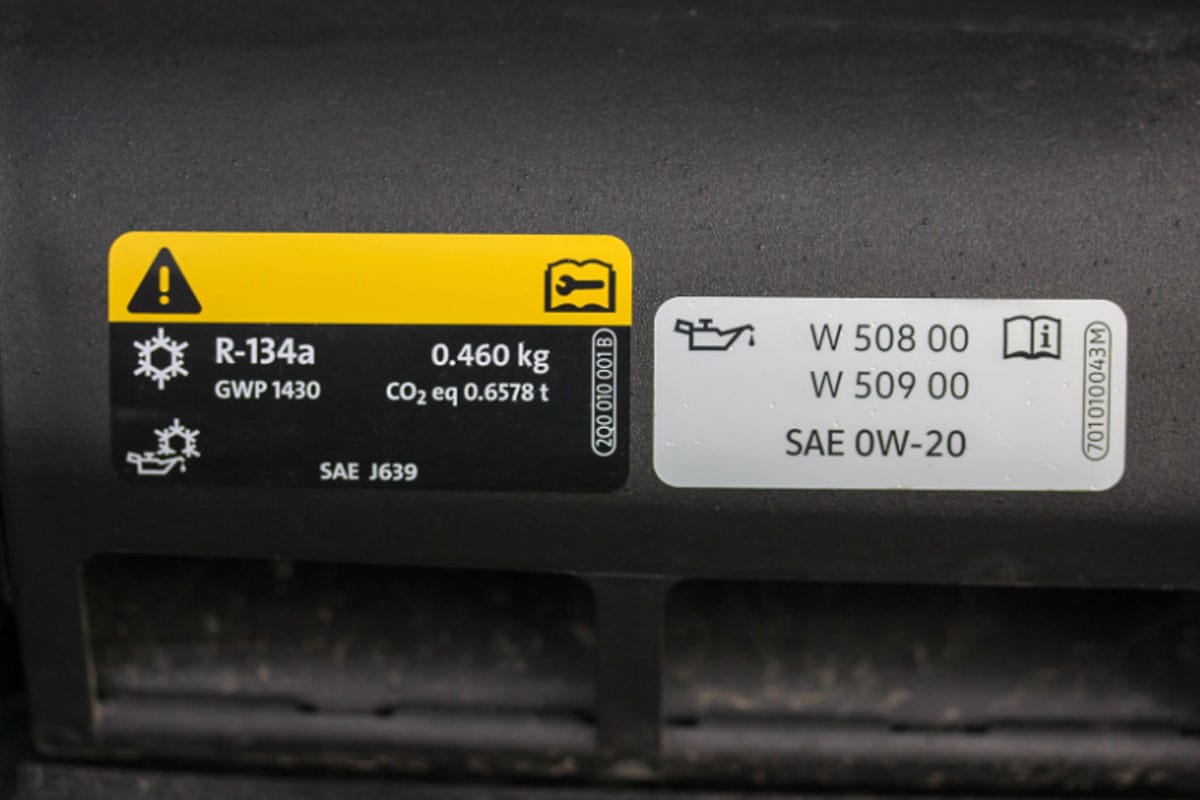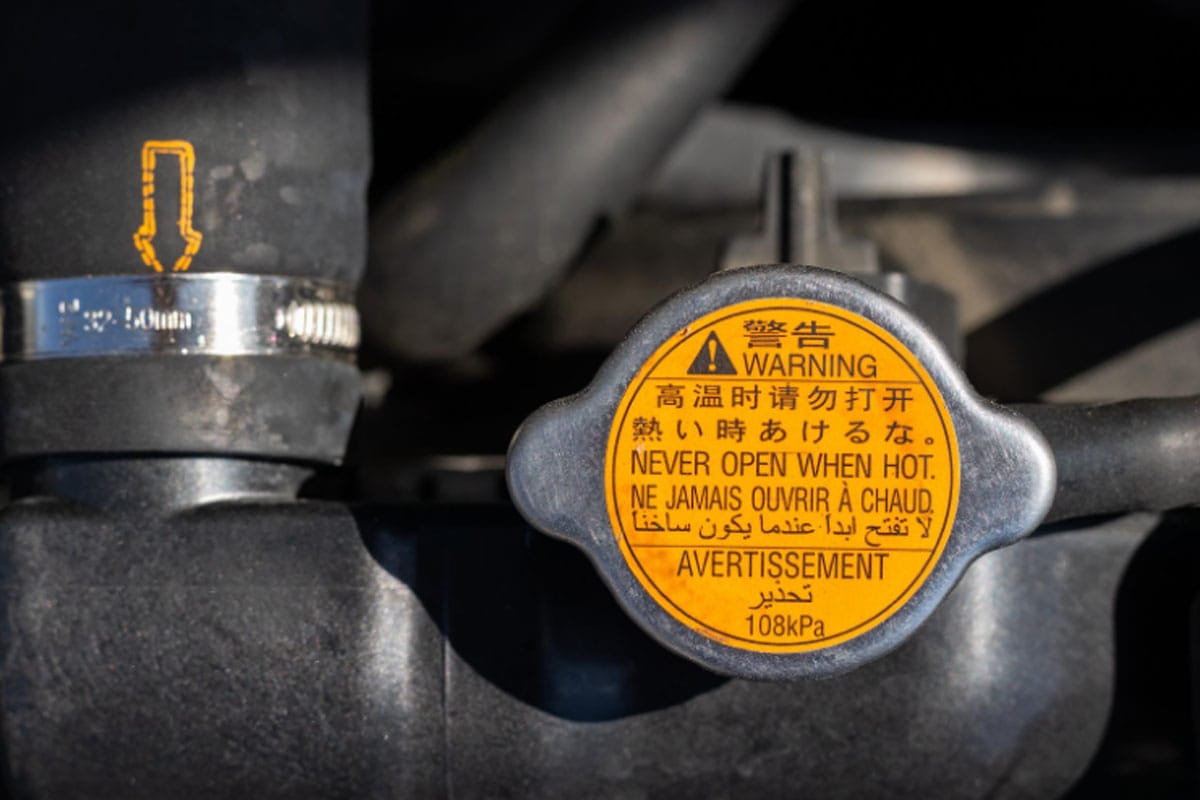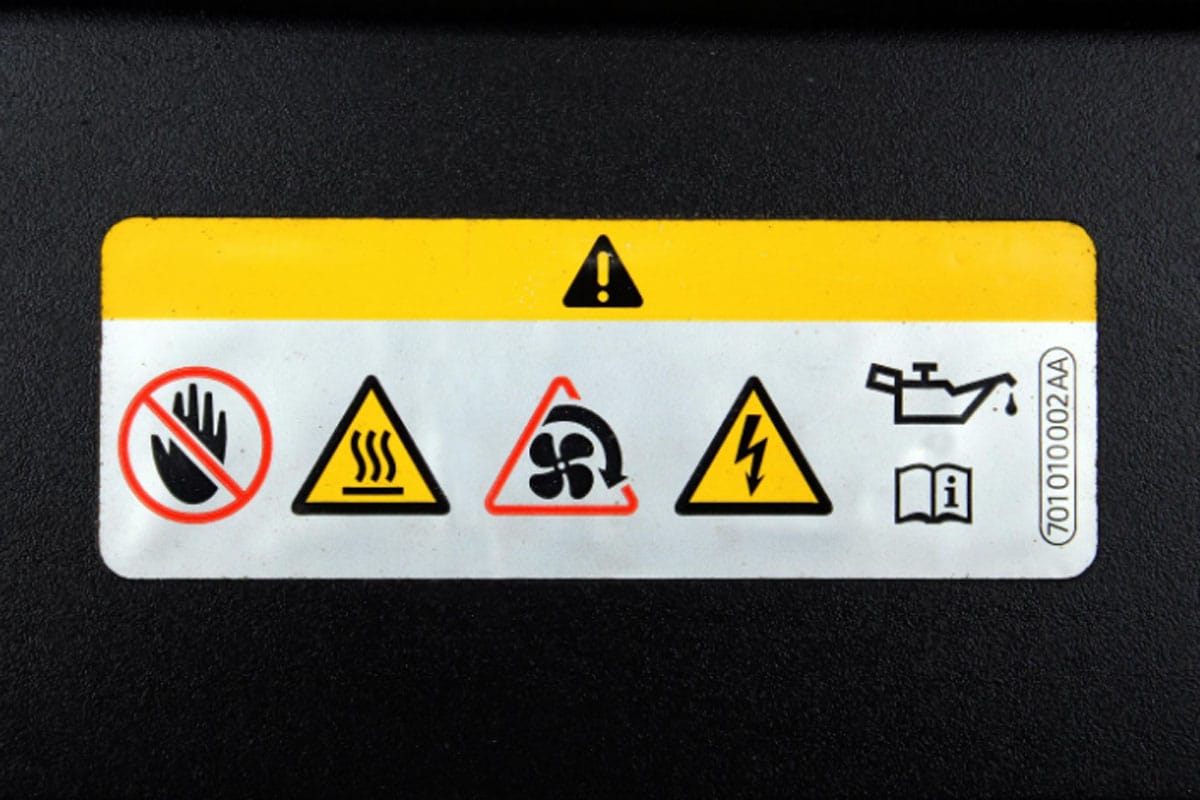The automotive and industrial industries run on precision, safety, and accountability. Every part, from the smallest fastener to an entire assembly, must meet strict requirements to ensure performance and safety. Labels play a critical role in this process, serving as identifiers, documentation tools, and compliance checkpoints.
Why Compliance Matters in Automotive & Industrial
Standards like UL (Underwriters Laboratories), PPAP (Production Part Approval Process), and FAIR (First Article Inspection Reports) are essential for ensuring quality, safety, and traceability. Labels designed to meet these requirements protect companies from costly recalls, support traceability, and help products pass audits with confidence.

UL-Certified Labels: Built for Durability
UL certification sets the bar for product safety and performance across industries. For labels, that means durability in extreme conditions.
UL-compliant labels must remain readable and intact in environments exposed to:
- High heat in engine compartments.
- Chemical exposure in industrial plants.
- Abrasion and wear from heavy handling.
For example, a wire harness label in a car must withstand years of heat cycles without fading. A warning label on a power tool must resist oil and solvents while remaining legible and clear. Without UL-compliant durability, safety information could be lost, putting consumers and manufacturers at risk.
PPAP Traceability: Accountability from Supplier to OEM
The Production Part Approval Process (PPAP) is a standardized approach used in the automotive industry to ensure that suppliers meet the requirements set by Original Equipment Manufacturers (OEMs). Labels are an integral part of this system because they provide traceability at every step of the supply chain.
For example:
- Lot numbers and barcodes help trace defective parts back to their source.
- Serial codes connect each component to testing and inspection records.
- Compliance marks verify that suppliers are meeting the specified requirements.
By using PPAP-compliant labels, manufacturers can demonstrate product quality and ensure accountability, even years after the product is produced.

FAIR Standards: Documentation for First Articles
In aerospace and industrial sectors, First Article Inspection Reports (FAIR) confirm that a product has been manufactured according to design specifications. Labels support this process by carrying the documentation needed for audits and inspections.
FAIR-compliant labels ensure:
- Complete identification of first-run parts for testing.
- Lot and batch traceability for reporting.
- Verification that the product matches engineering drawings and standards.
In industries where safety and reliability are non-negotiable, FAIR labeling provides customers and regulators with the confidence that every product is manufactured correctly the first time.
The Risk of Noncompliance
The cost of cutting corners on compliance is steep. Noncompliant labels can result in:
- Failed audits leading to costly delays.
- Recalls if defective or mislabeled parts reach customers.
- Lost contracts with OEMs or government buyers.
In an industry built on precision, there’s little room for error. Compliance labels are the insurance policy that protects manufacturers from financial and reputational damage.
Beyond Compliance: Building Trust with OEMs and Consumers
While compliance is required, it also provides a competitive advantage. Manufacturers who demonstrate rigorous labeling practices are more likely to win the trust of OEMs, regulators, and end-users.
A label that can withstand years in a harsh environment shows that the brand values safety, accountability, and reliability. In competitive automotive and industrial markets, that trust can be the difference between securing a contract and losing one.

In automotive and industrial sectors, compliance labels are more than just identifiers—they are proof of quality, durability, and accountability. UL-certified durability, PPAP traceability, and FAIR documentation all play vital roles in ensuring safety and meeting industry standards.
At Whitlam Group, we design and manufacture labels built to excel under the most challenging conditions. Our solutions meet industry certifications while delivering clarity, durability, and audit-ready documentation. Ready to upgrade your compliance labeling? Partner with Whitlam and ensure your products perform on the road, in the factory, and beyond.
Frequently Asked Questions
- What makes a label UL-certified for automotive and industrial use?
A UL-certified label meets rigorous safety and durability standards verified by Underwriters Laboratories. To qualify, materials and adhesives must withstand extreme heat, moisture, chemicals, and abrasion. For automotive and industrial products, this ensures that safety warnings, serial codes, and compliance data remain readable throughout a product’s lifespan—supporting both regulatory and performance requirements. - Why is PPAP labeling essential for automotive manufacturers and suppliers?
PPAP labeling provides end-to-end traceability by linking every part to its supplier, production lot, and test results. This process helps Original Equipment Manufacturers (OEMs) verify that each component meets specifications before mass production. PPAP-compliant labels simplify audits, speed up defect investigations, and demonstrate accountability throughout the automotive supply chain. - How do FAIR labels improve quality control and compliance documentation?
FAIR labels help manufacturers document and verify that first-run parts match design and engineering standards. By including lot numbers, serial IDs, and inspection data, FAIR labeling facilitates the tracking of test results and ensures compliance during audits. This system reduces production errors, enhances quality control, and ensures that products meet aerospace and industrial safety standards.